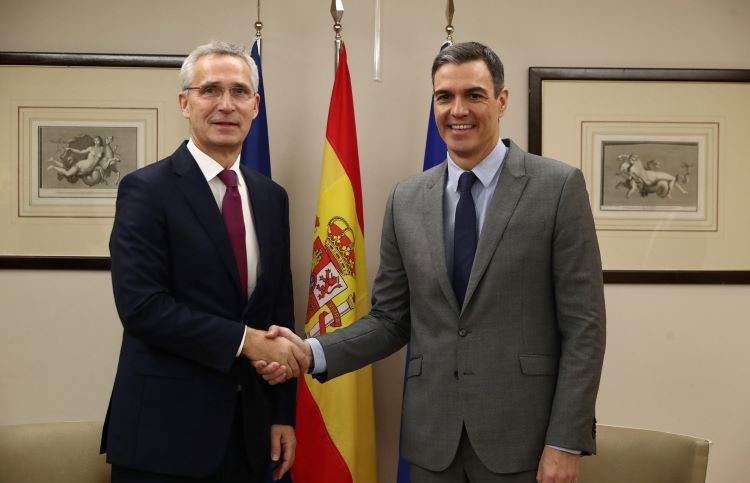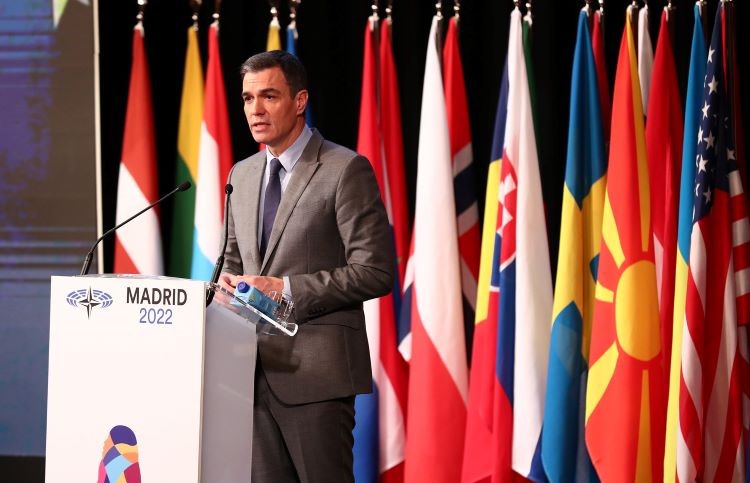The Diplomat
NATO Secretary General Jens Stoltenberg warned yesterday in Madrid that the allies must “invest more in Defense” to “support Ukraine in the long term”, because the 2% of GDP adopted at the Wales Summit in 2014 in view of 2024 “should be considered a floor, not a ceiling”.
“The last time I came to Madrid was when we held the magnificent NATO Summit here in June. I believe that both the holding of the Summit and the NATO Parliamentary Assembly demonstrate Spain’s strong commitment to our transatlantic Alliance,” said Stoltenberg during his address to the 68th Parliamentary Assembly of the Atlantic Alliance (NATO), held in Madrid.
According to the Secretary General, Russian President Vladimir Putin “made two major strategic mistakes when he invaded Ukraine in February of this year: he underestimated the courage and will to fight of the Ukrainians and he underestimated the unity and relentless determination of NATO allies and partners to support Ukraine.”
However, he warned, “it would be a great mistake to underestimate Russia,” which “retains significant military capabilities and a high number of troops and is prepared to suffer considerable casualties and inflict horrible suffering on the Ukrainian people.” “If we allow Putin to win, all of us will have to pay a much higher price,” because “authoritarian regimes around the world will learn that they can get what they want with brute force.”
“So we must be prepared to support Ukraine for the long term, and this support comes at a price,” he said. “We have strengthened our defenses since 2014, in response to Russia’s illegal annexation of Crimea,” he recalled. “We have implemented the biggest reinforcement of our collective defense since the end of the Cold War and now we are doing even more, to prevent the conflict in Ukraine from escalating beyond Ukraine,” he continued.
“To do all this, we need to invest more in Defense,” he warned. “2022 will be the eighth consecutive year of increased defense spending in Europe and Canada and by the end of the year, we will have spent over $350 billion additional US dollars on defense since we committed in 2014 across Europe and Canada,” he continued. “At the Vilnius Summit, Defense investment will be a major theme, and I hope allies will continue to move forward even with commitments beyond 2024, because 2% of GDP on Defense should be considered a floor, not a ceiling,” he said.
The 2% target is part of the so-called Wales Commitment, adopted at the 2014 NATO Summit, which called on states to “make progress” towards 2% over a ten-year period (thus 2024). Last June 30, the President of the Government, Pedro Sánchez, announced at the end of the NATO Summit in Madrid his intention to submit to the Spanish Parliament a “country agreement” to reach 2% in defense spending in 2029 (five years after the 2024 date). The proposal, agreed with the main opposition party, the PP, was approved two weeks later by the Congress of Deputies with 222 votes in favor, 68 against (including the seats of Unidas Podemos, a minority partner of the Government) and 55 abstentions. The text is not binding, but it is quite important from a “symbolic” point of view.
Meeting with Pedro Sánchez
In the margins of the Parliamentary Assembly, Jens Stoltenberg was received yesterday by Pedro Sánchez, with whom he discussed the evolution of the commitments acquired during the Madrid Summit, the next NATO Summit in Lithuania and the international geopolitical situation. During the meeting, according to Moncloa, both leaders discussed the need to maintain a reinforced support to the Alliance’s Southern partners, such as Mauritania and Tunisia, within the so-called 360º approach to threats.
Pedro Sanchez also expressed his concern about Russia’s decision to target electric power and water supply facilities and warned that recent events in Poland show that everything possible must be done to prevent the conflict from escalating. Sanchez and Stoltenberg also discussed the accession process of Sweden and Finland to the Atlantic Alliance.
The NATO Parliamentary Assembly, held between November 18 and 21 at the Spanish Parliament in Madrid, brought together 269 parliamentarians from the 30 member countries (in the case of Spain there was no member of Unidas Podemos) and a hundred members of the Chambers of 15 partner countries and of the eight delegations of parliamentary observers. The aim of the meeting was to evaluate the implementation of the decisions adopted last June at the NATO Summit in relation to the new Strategic Concept, the support to Ukraine and the response to the Russian threat.







